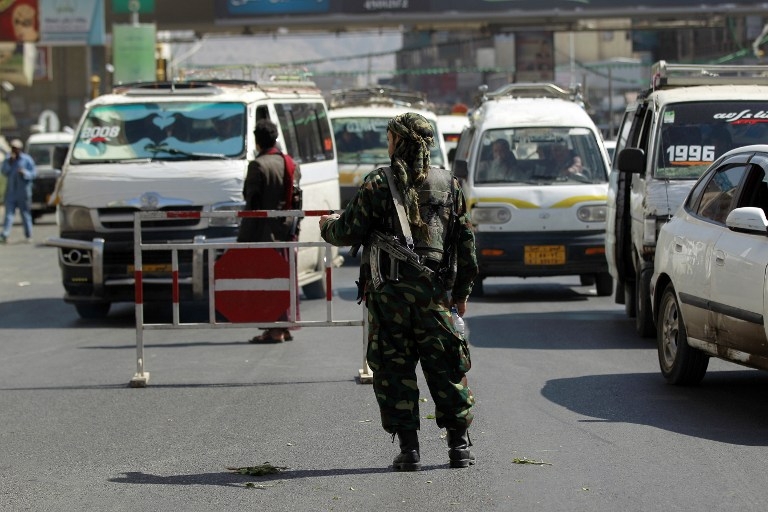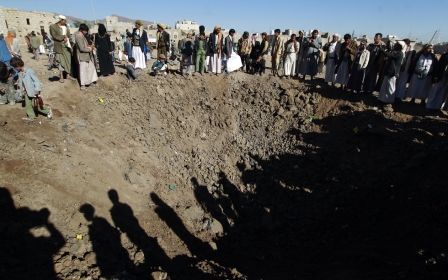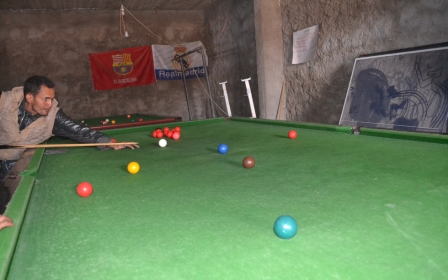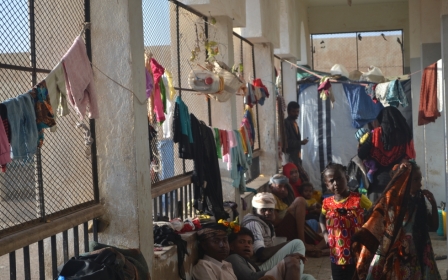An army of thieves: Sanaa plagued by 'carjackers' posing as soldiers

SANAA - Ahmed al-Futaih was driving his car near the Shahran Hotel in the early morning sun when his way was blocked by a group of armed men in military uniforms.
"I used to drive down that road every day, and there was never a checkpoint, but the police, the army and the Houthis often set up new checkpoints," Futaih said. "I thought maybe they were special forces soldiers."
But this was no ordinary checkpoint, and these were not special forces.
Two of the men forced Futaih out of his car and within moments were in control and driving away, leaving Futaih on the pavement, the latest victim of a new crime spree in the Yemeni capital - car robbery.
There is next to nothing that hard-pressed security forces can do about it.
New MEE newsletter: Jerusalem Dispatch
Sign up to get the latest insights and analysis on Israel-Palestine, alongside Turkey Unpacked and other MEE newsletters
“I’d heard about car robbers, but I didn’t imagine they would be stealing cars on a main street in the middle of the day when there are people walking around,” said Futaij
"When I went to the police station, they told me that many other people had already complained but they couldn’t do anything because the car-jackers know how to hide the cars.”
Car robbers have been quick to capitalise on the collapse of security in Sanaa, and they are enabled through easy availability of military uniforms in the Houthi-controlled parts of Yemen.
Reports of car robberies have increased sharply in the past year, but police say there is little they can do to track the stolen vehicles because of the dangers they face as a result of the Saudi-led military campaign against the Houthis.
“We are working hard to protect the capital and the provinces, but we are not safe in our stations as the air strikes can target us anytime, so we cannot save the residents from the car-jackers,” Mohammed Abu al-Rigal, a police officer based at al-Sabeen police station, told Middle East Eye.
Rigal said that police at al-Sabeen were receiving about three reports of car robbery a week, and that most of the thieves wore military uniforms.
“Anyone can buy a military uniform from al-Qiadah Street and set up a checkpoint in any street,” he said.
“It has become an easy thing to set up a checkpoint. There are more than 20 checkpoints alone in al-Sabeen, and all of them belong to the Ansarallah [Houthis].”
Houthi rebels have been in control of Sanaa since driving out Yemen’s internationally recognised President Abd Rabbuh Mansour Hadi in September 2014.
Rigal said the security situation had worsened since the beginning of the Saudi-led war in support of Hadi a year ago.
A source in Yemen’s interior ministry told MEE that hundreds of cars had been reported stolen in the past year.
Previously, the police in al-Sabeen had dealt with about three car robberies a month and had usually been able to trace and recover the vehicles, Rigal said.
Since the beginning of the war, they had not retrieved a single stolen car.
"Confronting this offensive against the Yemeni people is our priority, so we cannot follow the car-jackers nowadays. The Saudi-led coalition is responsible for the chaos in the whole country."
Even Sanaa residents who have grown used to the daily realities of passing through checkpoints admit that there is little they can do once they have been pulled over.
Taxi driver Wahid Mozahem told MEE he had fallen for another scam in January when two armed men dressed as soldiers asked him to take them from the al-Hasabah area of Sanaa to the Bani Al-Harith district north of the capital.
“As I was driving, they were talking to me about the fare, and they said they only had YR1,000 [$4.60], while the fare was YR2,000,” said Mozahem.
“I told them that I would help them because they are soldiers. After half-an-hour of driving, they pulled out their guns and put them to my head and told me to get out of the car.”
With police currently limited to logging the details of stolen cars, the interior ministry in Sanaa has hit on alternative plan to try to curb the crime spree by targeting the tailors selling the military uniforms.
“The interior ministry has a plan to stop the car-jacking, and the first step will be by stopping the tailors in al-Qiadah Street from selling military uniforms to residents,” the source said, speaking on condition of anonymity.
“After that there will be specific checkpoints set up in Sanaa in some places, and then we will try to cut down on cars being driven without licence plates.”
Under Yemeni law, tailors are allowed to sell military uniforms only to soldiers who show their ID, but some tailors will sell uniforms to anyone willing to pay.
Some people suspect that members of the informal Houthi militia groups, who are not part of the regular security forces but operate their own checkpoints, may also be involved in car-jacking.
"The militias that man the checkpoints in Sanaa and in some other provinces are not paid a salary by the government, so maybe they see stealing from residents as a way of supplementing their income,” Ahmed Obaid, a retired officer, told MEE.
Obaid said the only solution was for the Houthis to integrate their fighters into the regular army and security forces, so that the public were able to recognise official checkpoints more easily.
Middle East Eye delivers independent and unrivalled coverage and analysis of the Middle East, North Africa and beyond. To learn more about republishing this content and the associated fees, please fill out this form. More about MEE can be found here.




